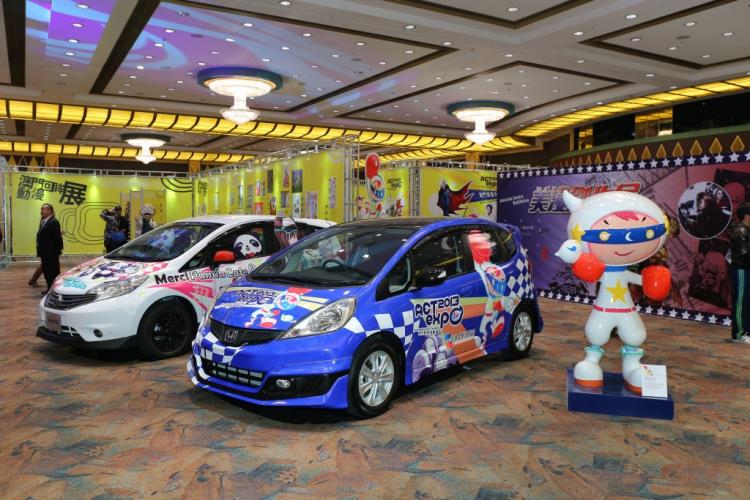An accountant by profession, Ashley is member of several anime and comics associations in Macao. She started writing fiction, illustrated and drew the comic strip of Macao Daily in the early 1990s. Later on she took the role of comics writer, and she is now the managing editor of MIND², a comics magazine published by Comic’s Kingdom. Ashley also participates in organising the Macao Animation, Comic and Toy Expo, an event run by Macao Animation & Comic Alliance.

About three or four decades ago, parents and teachers believed that comic books and cartoons were bad for kids. It is until several years ago that people started having a different perspective on anime and comics, thanks to the relevant policies carried out at the national and regional levels. Now, anime and comics are part of the creative industries, and a governmental department is set up to oversee the development of the sector in Macao. The society, accordingly, also started to rethink what anime and comics actually are. For a certain period of time, local anime and comics associations have become very popular partners in various trade shows.
In fact, the anime and comics industry has gained a firm foothold in many countries and regions. Anime and comic books have expanded in such a way that they have been made into by products and generated huge revenues. This business model is already very well-known and some countries have invested significantly in this industry, expecting a long-term economic growth from it. For instances, cities in the mainland regularly hold large-scale comic and anime festivals with steady support from local governments. Despite the quality is not up to par yet, it at least helps promote the whole industry and attracts international attention.
Macao is tiny, but with the support of technology and the internet, as well as relevant policies, the anime and comics industry in Macao is no longer rewardless. Apart from a series of new book releases and exhibitions, you can easily find locally created anime or comic characters in everyday life: stationery, clothing, articles of daily use, dolls, accessories, souvenirs and even thematic restaurants. Some governmental departments also like using such characters to promote policies or festive events, and gaming conglomerates have also commissioned local comic artists to design promotional leaflets for them. Comics contest is a popular choice for local associations when organising activities, as it is pretty straightforward. Educational institutions with clear-sighted vision have started offering relevant professional training courses to groom talent. With the subsidies provided by the Education and Youth Affairs Bureau, some associations also started offering fundamental courses on anime and comics, but very often there aren’t enough qualified instructors to teach the courses. The once small-scale Doujinshi (Japanese term for self-published works, usually magazines, comics or novels) activities, after years of effort, have now become signature events. Conferences and expos with related themes are popping up. Although enhancement is needed and its impact is yet to be seen, the progress made so far is a significant step towards industrialisation.
With such a rosy picture, let’s have a look what is happening in reality. Macao is a small open economy and there is only one industry that is really thriving here. We have made reference to the best practices overseas, too. But given the size of Macao, even if we have all infrastructure ready, it’s still difficult to fly high.
It’s also difficult to change how people think even the policy has changed. Some people still think that anime and comics are all about cosplay, an activity that only teenagers are interested in it. Anime fans in Macao possess high purchasing power but they much prefer foreign productions and products. Even if you have a good business idea, it’s unlikely to work in Macao because the market is small and rent is high. And there is a shortage of talent and manpower. This is why an anime-themed restaurant can’t really be loyal to its original positioning. Now most of the anime and comic artists in Macao are amateurs. If you don’t have a full-time job, it’s impossible to finance this hobby. Even a comic book is published, sales and marketing is a pain. If an exhibition is going to be held or a study tour is organised, artists involved have to undertake a large amount of administration-related work. Even if an individual artwork is excellent, due to the small number of productions and the amount of time needed to make them, the overall growth is slow. The cost of organising anime and comics expos is high, and governmental subsidies are never enough to cover the expenses.
Industrialisation of the anime and comics industry in Macao is the right way out. It’s a long way to go though, and it’s not possible to get a goose that laid the golden eggs anytime soon. It’s not an easy path, but I believe that people in the industry will go forward steadfastly.